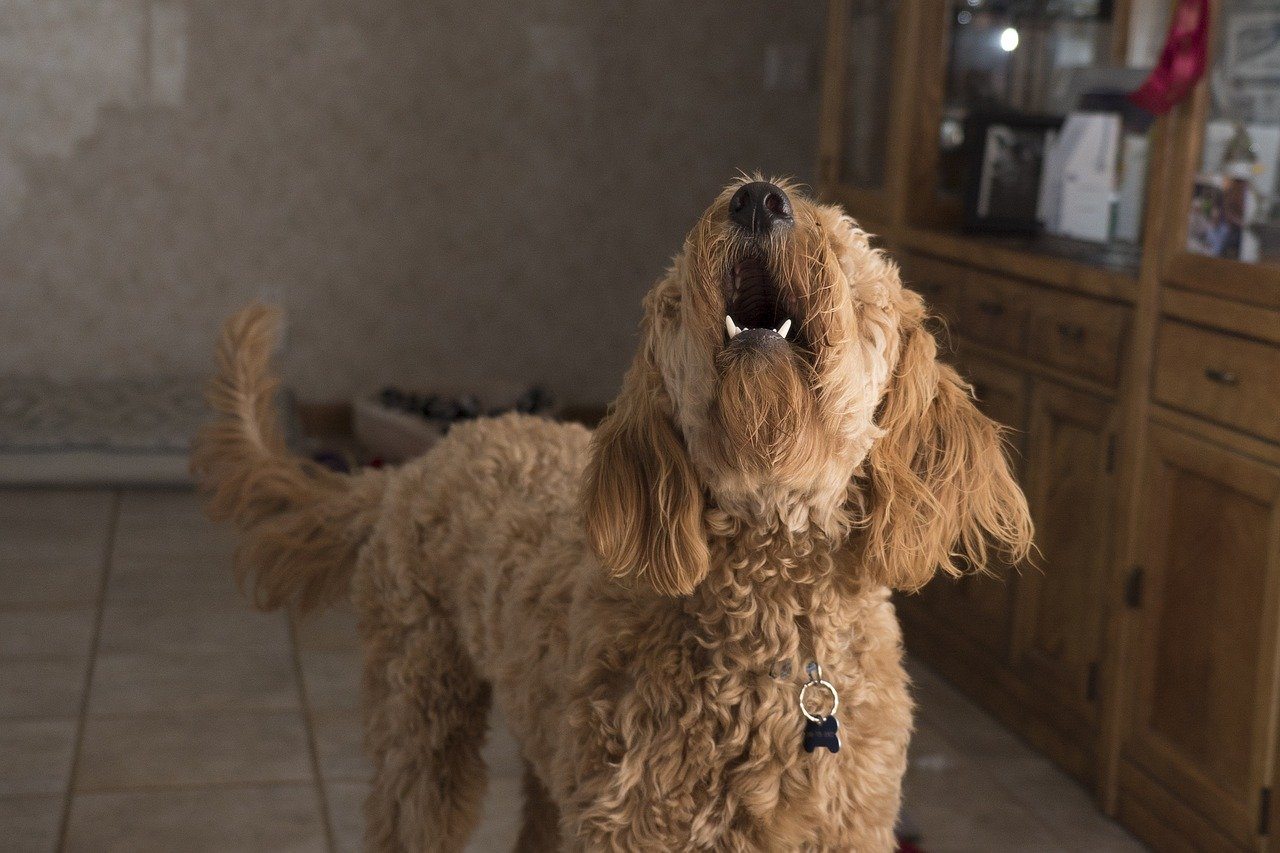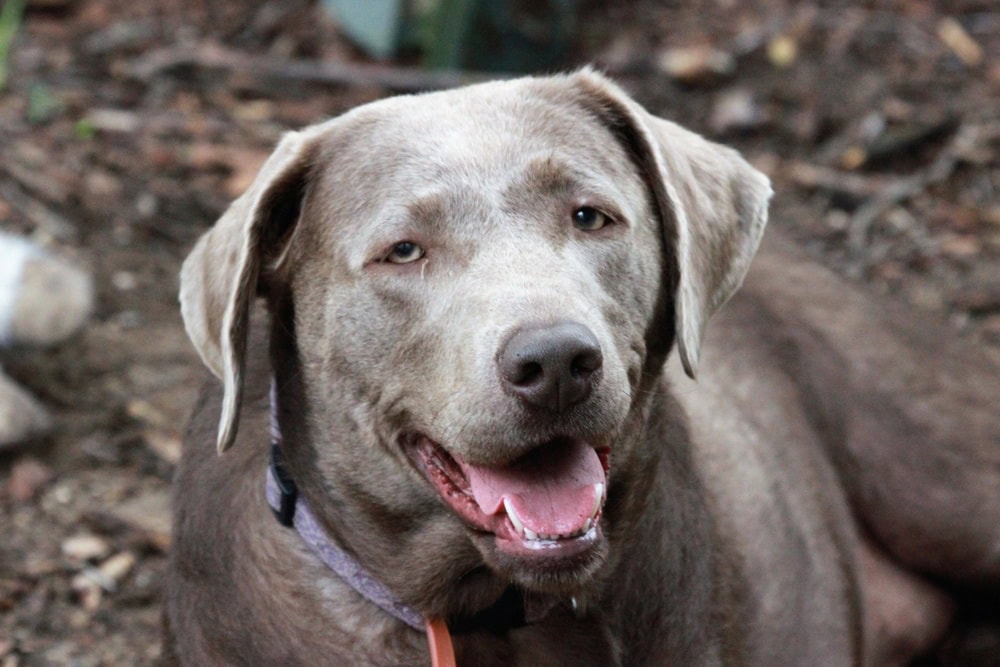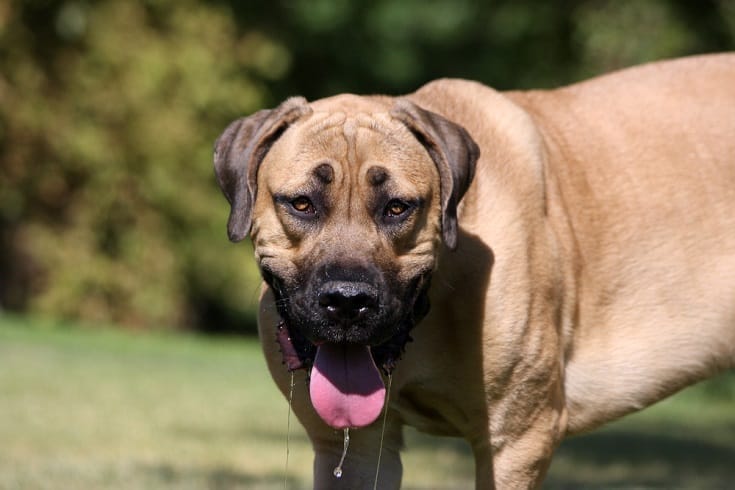How Long Does Kennel Cough Last? Vet Approved Causes, Signs & Treatment

Updated on

Click to Skip Ahead
If your pup suddenly develops a consistent, forceful cough that sounds like they are choking on something, often followed by retching or even vomiting, there’s a good chance they have caught kennel cough. This is more than likely the case if it occurs after they have interacted with dogs that are not from your household.
Kennel cough is a type of canine respiratory disease. It is typically characterized by the inflammation of the bronchi and trachea, triggering a dry, sometimes hacking cough. In serious cases, it can result in pneumonia.
Fortunately, most kennel cough cases are not severe, with most dogs recovering all by themselves as long as you provide them with proper care. A typical kennel cough case can last between 1 and 3 weeks, depending on the strength of your dog’s immune system.
This article will take an in-depth look at this canine respiratory disease. Read on to learn more about kennel cough in dogs.
What is Kennel Cough?
Kennel cough, also called infectious tracheobronchitis, is an all-encompassing term for the multitude of respiratory inflammation and infections that cause coughs in dogs, just like how the common cold in humans is a symptom of just about any respiratory disease.
However, the most common cause for kennel cough is the Bordetella bronchiseptica bacteria. This is why this disease is often simply referred to as Bordetella.
However, most kennel cough cases result from a combination of the bacterium and other infectious viruses. These viral agents are what compromise the dog’s immune system first, thus increasing your pooch’s susceptibility to Bordetella. Some of these viruses include the canine influenza virus, canine adenovirus, canine distemper, and parainfluenza virus.1
Once inside your dog’s body, the bacterium and viral agents work in unison to attack cells in the respiratory system. This weakens the dog’s respiratory tract barrier, putting their trachea (windpipe) and bronchial tubes at risk of inflammation, as well as primary and secondary bacterial and viral infection.
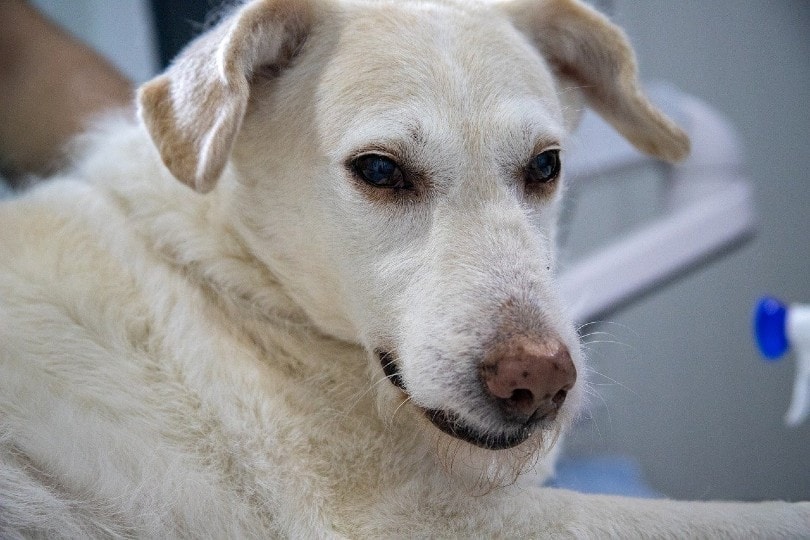
How Does a Dog Catch Kennel Cough?
Kennel cough is a very contagious disease. It spreads between canines when a healthy dog inhales air contaminated with Bordetella and other bacteria and viruses from a sick dog. All the sick animal has to do is sniff, sneeze, share a food or water bowl, or cough for the contaminants to spread into the environment, surfaces, and soil around them.
Unfortunately, these pathogens can stay alive in the environment or other surfaces for several days or weeks, putting every canine around at the risk of contracting kennel cough.
As you can imagine, the most likely place for your doggo to catch this disease is in areas where they interact with other dogs, such as shelters, boarding kennels, dog daycare, and dog parks, where there are more dogs in a smaller confined space.
This is why you are advised to get your pup a kennel cough vaccination, as it reduces their risk of contracting this infection when they interact with other dogs, and it may reduce the signs of their illness if they do end up catching it. The vaccine does not offer 100% protection, as it largely depends on the dog’s immune system, and unfortunately it does not last long.
Signs of Kennel Cough in Dogs
A persistent, forceful cough, as if trying to cough something up, that almost sounds like a goose honk, is the classic kennel cough sign. When a runny nose and eye discharge accompany this cough, it is more than likely that you are dealing with kennel cough.
The good news is that most cases handle this infection well, retaining their appetite and energy levels.
But if your pooch displays those signs in addition to a loss of appetite, a decrease in energy levels, fever, and possibly vomiting, it means that they probably have a more severe case of kennel cough. Therefore, take them to the vet immediately.
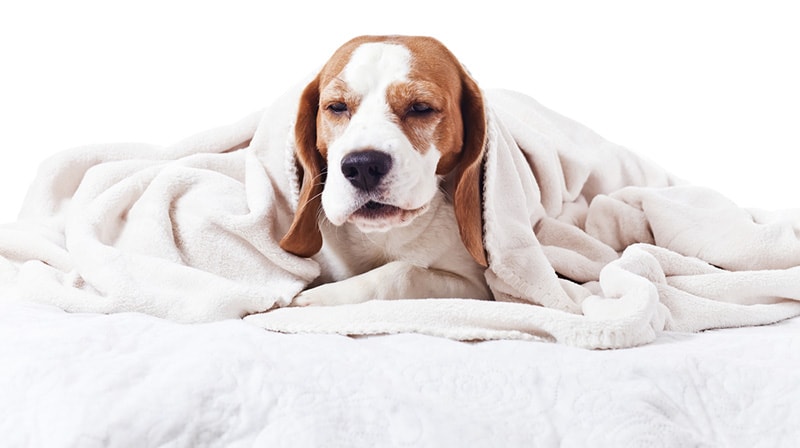
How Long Does Kennel Cough Last?
Kennel cough can last anywhere between 5 days and 3–4 weeks. As mentioned, healthy dogs can handle this infection without a lot of problems. Again, just like the common cold, kennel cough signs are typically at their peak during the first 5 days, with their severity dwindling over time.
However, the case is different for dogs with weaker immune systems, such as young pups, seniors, and sick dogs. Such dogs not only experience more severe signs but also take a longer time to recover.
The duration of this infection also depends on environmental factors. For example, airborne irritants such as smoke and a dry climate increase the severity of kennel cough signs.
Kennel Cough Treatment
Ensure that your pup gets lots of rest and proper nutrition. Additionally, try to keep your pooch in a calm state, as too much activity or overexcitement can irritate their airways, triggering intense coughing bouts.
However, moderate activity is recommended to facilitate faster recovery. When taking your dog out for a walk, use a harness instead of a leash. This is because leashes tend to put a lot of pressure on a dog’s windpipe, thereby causing further irritation.
Make sure to keep your dog away from any other dogs, as they may spread the disease during their illness and for the next 5-10 days. In some cases, dogs may shed Bordetella for the next 1-3 months following infection.
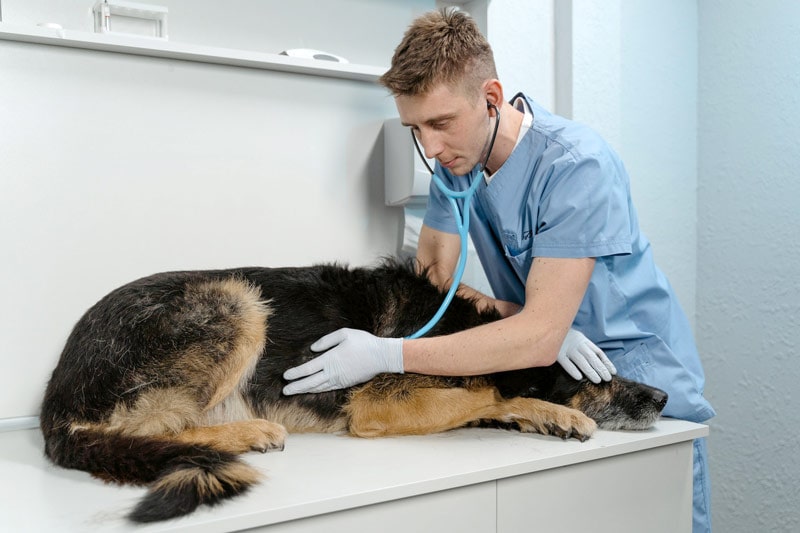
Some of the treatments to consider include:
Natural Treatments
For starters, ensure that your pooch is drinking lots of water, as this will help reduce the irritation on their throat. Additionally, increase the humidity levels in your home since a dry environment enhances the severity of kennel cough signs.
Also, increasing moisture levels in your dog’s body, as well as in the environment, goes a long way in alleviating kennel cough. You can try steaming the bathroom and keeping the dog inside for a while.
Home remedies for cough treatment in humans can also be effective in treating kennel cough in dogs. One of the most popular remedies involves the use of honey. Thanks to honey’s antimicrobial and antifungal properties (especially manuka honey), it can help reduce the inflammation in your pooch’s throat, thus offering relief. Consider giving them a spoonful of honey three times a day during the duration of the infection.
Medication
Seek medical treatment immediately in case your pup’s signs worsen or if they do not improve within 48 hours. As mentioned, kennel cough signs do not take a toll on most dogs. This means that apart from a constant dry cough, your pooch should otherwise be okay. However, a lack of appetite and lethargy are good indicators that the infection is taking a toll on your dog.
The vet is likely to prescribe antibiotics and painkillers to help fight the infection and for reducing inflammation.
Preventing Kennel Cough in Dogs
A good offense is the best defense when it comes to your pup’s health. Therefore, be on the offensive against this disease by ensuring that your doggo’s diet is healthy, balanced, and complete, in accordance with AAFCO recommendations, and contains all of the necessary vitamins and mineral supplements. Doing that will allow your dog to build a stronger immune system.
Additionally, talk to your vet about vaccinating your pup against kennel cough. While a vaccine might not always prevent your dog from contracting this infection, it is still beneficial, as it reduces the severity of the effects of the disease. If anyone in your family is immunocompromised, speak to your vet and the GP about the low but possible risks of contracting Bordetella.
Most importantly, make sure that the places that you take your pup to interact with other dogs adhere to strict health standards. Moreover, they should insist on all dogs having up-to-date vaccinations.
Featured Image Credit: Igor Normann, Shutterstock




